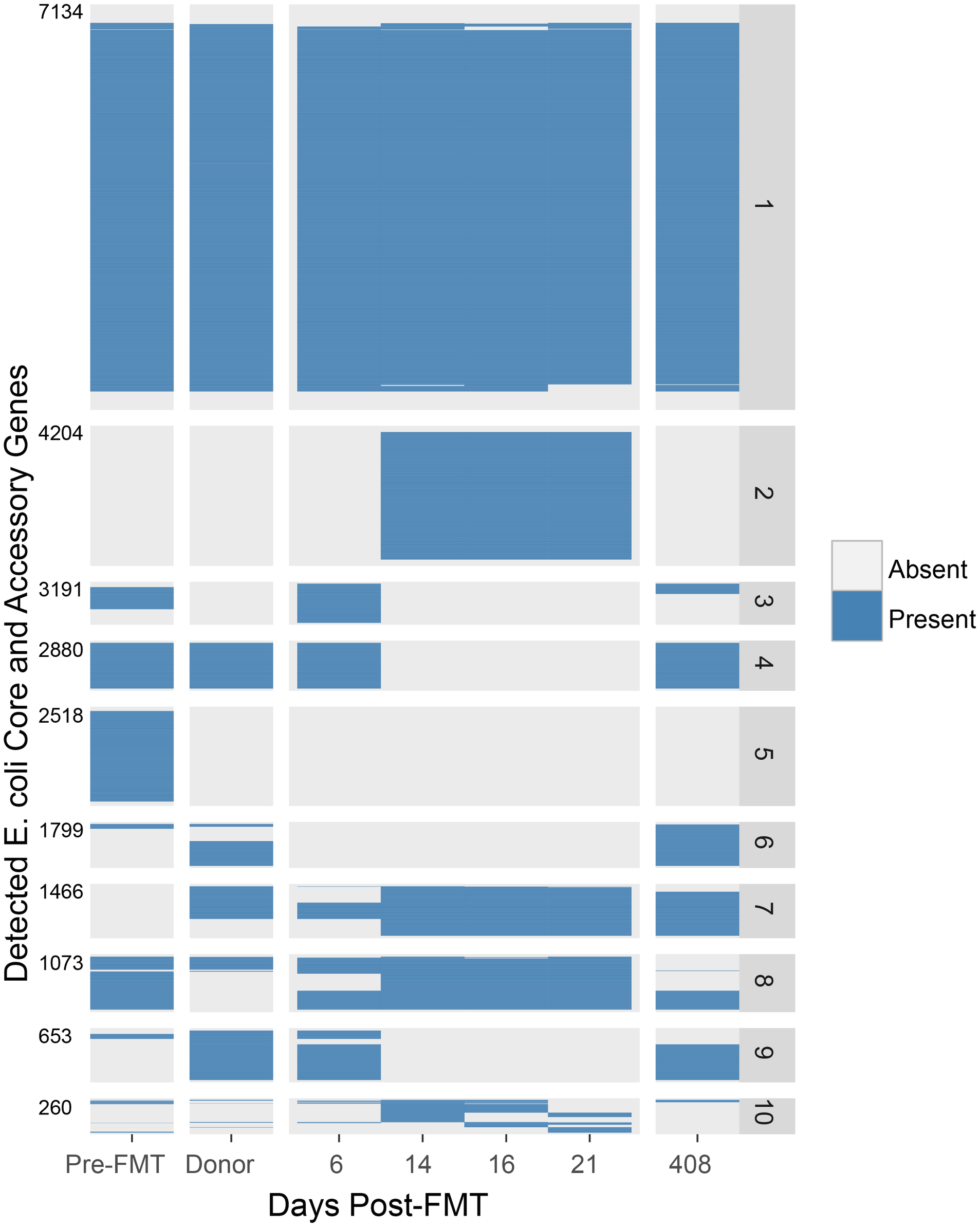I was lucky enough to see Dr. Ami Bhatt present the data from this paper at ASM 2017, and I thought that it made a strong case for an underappreciated point in discussions of the microbiome. When I walked away from the talk (and put down the paper), I thought to myself, "Wow, the diversity of bacterial strains may even direct interventions like FMT!" PLoS One, 2017 doi: 10.1371/journal.pone.0182585.
The core point I'd like to emphasize for background is that different bacteria from the same species (such as E. coli) generally contain a different set of genes in their genome. When I say "generally," I mean that if you isolate the E. coli from two people, they will almost certainly contain a different set of genes. The number of genes that differ between isolates can vary, but something like 5-10% would be unsurprising for E. coli (see Gordienko, 2013, J Bacteriol for details). In other words, I like to keep in mind that your E. coli is special and unique.
Now, getting back to the paper, they were studying patients who underwent "fecal microbiota transplantation" (FMT), in which a formulation of microbes from a healthy person's microbiome (stool) are delivered directly to the lower intestine. One interesting observation the made is that even though a specific set of bacterial strains are being physically placed in the gut, the genetic makeup of those strains change quickly in the days, weeks, and months following FMT.
Fig 3. The total gene complement of E. coli in Subject A experiences large-scale remodeling in association with FMT, resulting in broad reductions in genes significantly enriched for virulence factors.
The figure above follows the detection of individual genes (rows) over the days following FMT (columns). When you look at this figure, you can see that the set of E. coli genes in this person's microbiome changes almost immediately after FMT. In other words, just because you put a specific strain in someone's gut, it doesn't mean it will stay there.
To wrap up, I'd like to make sure I don't come off as dismissive or discouraging of FMT. I am a big believer in FMT and have read a number of studies describing its positive benefits for patients with life threatening illnesses. However, I am of the opinion that "healthy" microbiomes are beneficial because of the specific genes within them, and I'd like to encourage everyone to keep looking for those genes so that we can figure out when and how FMT provides the most possible benefit to human health.

